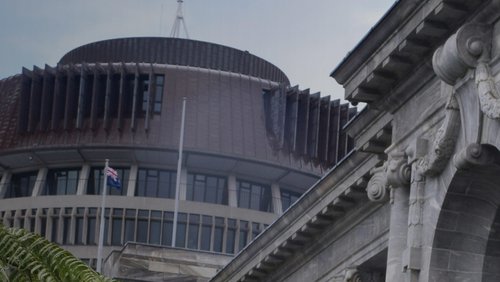27 Jun 2023
Tropical Cyclone Gabrielle was an historic event, causing widespread damage and the tragic loss of 11 lives. Pan Pac Forest Products is a major employer in the Hawke’s Bay, near some of the hardest-hit communities. Engineering New Zealand member, Josh Garrett, is Pan Pac’s Utilities Engineering Co-ordinator. He shares how their Whirinaki site was impacted and what progress has been made with recovery efforts.
In the lead-up to Cyclone Gabrielle, Pan Pac’s leaders realised the danger and started shutting down the site. This allowed their workers to weather the storm in safety, and protected much of the equipment that would normally be out in the field. Even so, the floodwaters had a devastating effect on the sawmill, pulp mill, and the ancillary plant that supports them.
Josh was struck by the sheer volume of water and silt once he was able to get onsite. “Roughly 1.6 metres of water went right through the site,” Josh said. “It made its way through all of the equipment and infrastructure at ground level, bringing with it tonnes of silt and debris that was strewn throughout our plant.”
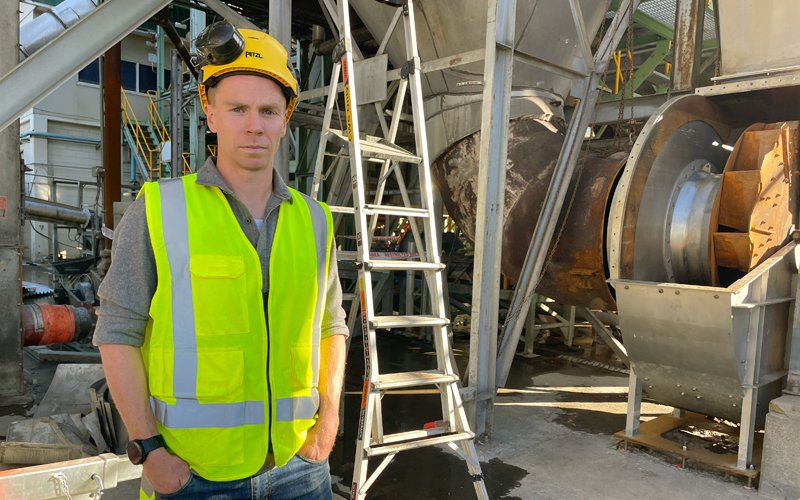
Josh Garrett onsite. Photo: Josh Garrett
In some cases, huge pieces of equipment had moved hundreds of metres with the floodwater. “One portacom had uplifted and travelled the length of the site, making its way around multiple fixed buildings and structures,” Josh said. “The most significant damage has been to our electrical infrastructure. The vast majority of our electrical rooms are at ground level, so these have all been underwater.”
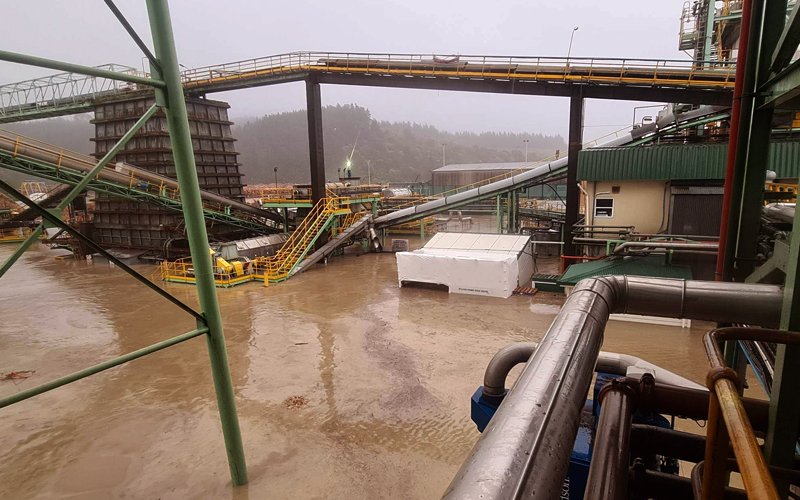
The Whirinaki site on 14 February, the day of the flood. Photo: Josh Garrett
As the clean-up began, the weather continued to hamper efforts. “We’d have days of continued dry weather and teams would make good headway, then overnight we’d get rain and the silt would liquify and just become un-handleable slop again,” Josh said. “We were fortunate to have a large group of contractors to call on with access to heavy machinery and vacuum trucks to help move it.”
Josh’s focus was re-establishing the process water supply to the site, which is drawn from the Esk River. “Getting that up and running was a battle, as the flood had gone through our trades workshop and claimed much of our gear,” Josh said. “We had to get temporary power and control, clear the silt from within all the assets and replace mechanical equipment, all without a lot of the specialist equipment we would normally have at hand.”
Our neighbours ... were without power and drinking water for weeks, so we've provided four generators and access to potable water whenever possible.
As a result, what normally would have taken under a week, instead took four. “Even then, once we had everything up and running, we struggled with debris from the river entering and blocking our pumps,” Josh said.
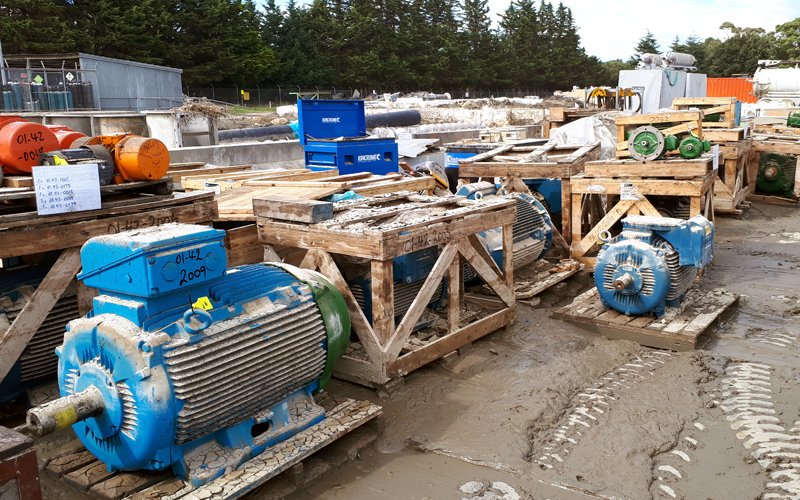
Flood damaged motors. Photo: Josh Garrett
Despite this, Josh says morale at Pan Pac is high. “Everyone got stuck in and is helping out where they can, which is great to see,” he said. “We’ve had offers of support from other businesses throughout the Hawke’s Bay and the rest of the country, which is really appreciated.”
Pan Pac is also doing what it can to support the local community. “Our neighbours, directly opposite the Whirinaki site, were without power and drinking water for weeks,” Josh said. “So we’ve provided four generators and access to potable water whenever possible.”
As the company moves into the long-term recovery phase, they’ve started redeploying staff usually involved in the day-to-day running of the plant into other roles where their training and skills are relevant, helping the mechanical, electrical and building services teams as they work to bring the plant back online.
The company is also treating the storm as an opportunity to modernise. “Parts of the plant are approaching 50 years old, and standards have changed in the meantime,” Josh said. “As a result, outright replacement becomes more feasible than trying to repair and re-engineer equipment to ensure it’s compliant and safe.”
Josh’s focus is also firmly on the future. “In the coming weeks, we’re looking to get main power back to the process water system, which will be a nice milestone,” he said.
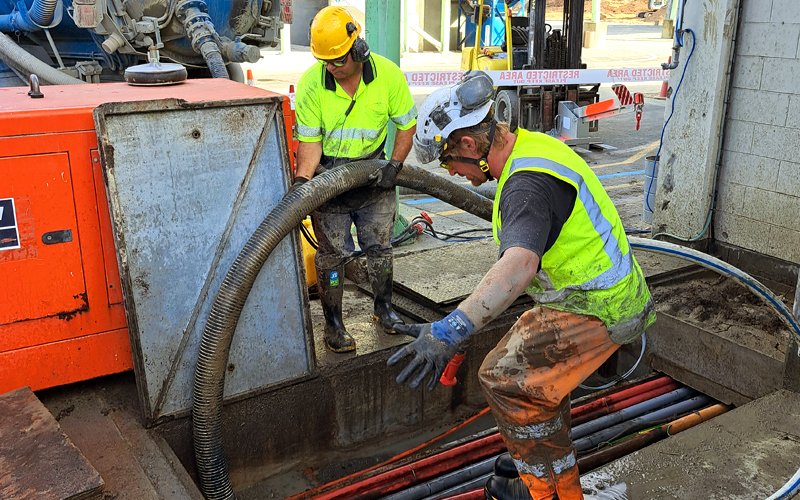
Removing silt and water with a vacuum truck. Photo: Josh Garrett



